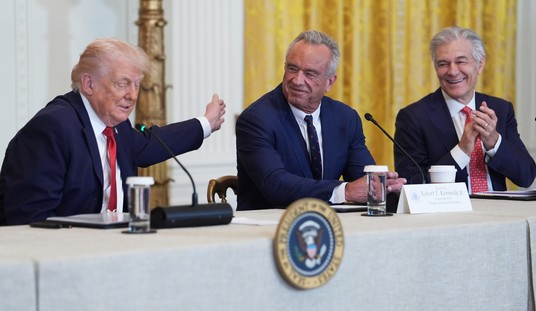
The story shows how the press is still grappling with the sex harrasment movement they forwarded.
For a time it seemed like the press could not get enough of the #MeToo stories. Maybe it was a return to the days of serious investigative journalism, or maybe there was a bit of catharsis in purging the industries of the really evil players. Possibly it had something to do with the media complex being stymied by an inability to seriously damage Donald Trump, so bringing down major predator could set the stage via setting a precedent.
Whichever the cause (and possibly an element of all those) the press revelled for a time in every new business titan felled by their proclivities. But we have also seen the struggles at times in following through on these reports. A current quandary many in the press are grappling with is how to address Joe Biden’s history of questionable acts as he is pondering his entry into the Presidential race. Many in the press feel bidden to report, but loathe to negatively impact his candidacy.
And as that paradox hits news rooms we learn that the Washington Post elected to kill a story that would ultimately bring down the head of 60 Minutes, Jeff Fager. It is both a puzzling decision but one that also reveals the relations between those in the media complex, and how the truth sometimes may take a backseat to maintaining those professional connections. And in a curious parallel, just like when NBC elected to bypass the Harvey Weinstein expose, with the decision to spike the story it was picked up by Ronan Farrow and detailed in New York Magazine.
And in that magazine’s The Intelligencer writer Irin Carmon reveals how she, and writer Amy Britton had the story of multiple cases of sexual harassment alleged at Jeff Fager by former 60 Minutes producers. As Carmon details it they initially had their base story approved by editors, back in March 2018. After they began reaching out to CBS, and 60 Minutes executives, for official comments they began getting pushback from management.
The story grew out of Carmon and Britton’s story about Charlie Rose and his lengthy rap sheet of sexual aggressiveness. This revelation eventually led to Rose being dismissed from CBS This Morning, and losing his PBS show. Rose was also removed as a correspondent for 60 Minutes, and it is his connection to that show that led to the details on Fager, the head of that program.
As Carmon and Britton were encouraged to continue work on their Rose story — something they had spent seven years tracking down — they had come to learn about a series of accusations directed towards Fager by former producers. This became an uncomfortable detail for the paper, as WaPo had recently teamed with the CBS news program on a story involving the opioid crisis. The paper, recognizing a possible conflict, reassigned the writers and the story to editors who had not worked with Fager, according to Carmon.
One of the ironies was that Carmon and Britton had been recipients of The Mirror Award, for “Best Story on Sexual Misconduct in the Media Industry”. Jeff Fager was in attendance that night in June, receiving another award, for 60 Minutes. As a probable sign of her frustration, in her acceptance speech Carmon alluded to her predicament with the silencing she endured:
The system has lawyers and a good reputation. It has publicists. It has a perfectly reasonable explanation about what happened. It has powerful friends that will ask if it’s really worth ruining the career of a good man based on what one women says, what four women say, what 35 women say. Indeed, the system is sitting in this room. Some more than others. The system is still powerful men getting stories killed that I believe will one day see the light of day.
More irony surfaced, as 60 Minutes was very willing to forward the Stormy Daniels accusations on the president, having her appear on their program. When the offices were questioned about this possible conflict of interest by Carmon she later was contacted by attorneys from the Clare Locke law firm. This was the same firm who had represented Matt Lauer and Glenn Thrush. They were told about smearing Fager’s name, and eventually their story was put to rest by WaPo editors.
It would be July of 2018, when Ronan Farrow’s expose’ on Fager would be published. The head of 60 Minutes was eventually let go, following more reports in September when a CBS reporter asking Fager about the story was threatened by him. Internal investigations at CBS also led to the network’s CEO Les Moonves being dispatched under his own sexual harassment charges.
Clearly the media shows they have internal conflicts when it comes to these #MeToo stories. They are very willing to go after perceived guilty parties, until those parties are found to reside within their own industry. At that time the standards apparently alter, and those deemed as “guilty” are placed under differing measurements.














Join the conversation as a VIP Member